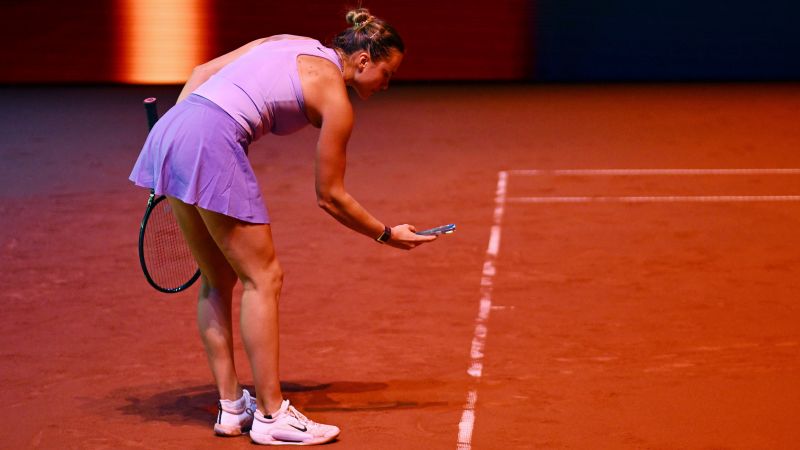ROCHESTER — For 78 years, Thomas Leonard has looked at life differently than most other people. "I've been blind in my right eye all my life," said Leonard, a lifelong Rochester resident. ADVERTISEMENT As a teen, his limited vision changed how he approached reading in school, driving a car and playing sports.
Despite being right-handed, Leonard said he does a lot of things left-handed, like holding his gun while out hunting. "Playing sports, I'd have to play on the right side of the rink so I can see the whole left side of the rink," he said. But in January, after a long career as an electrician and a lifetime of adjusting to one eye's worth of vision, Leonard had surgery on his right eye to remove a "very dense cataract," said Dr.

Piotr Kopinski, the Mayo Clinic ophthalmology resident who did the operation. After the surgery, Leonard went home that same day, his right eye covered with an eye patch. When he woke up the next morning and took the patch off, he got a surprise.
"I called (to) my wife in the bedroom and I said, 'Carol, I can see,'" Leonard said. Because Leonard's right-eye blindness was caused by a scar on the retina, Kopinski said it wasn't clear if the surgery would help Leonard's vision. "I told him that I could do the surgery, but we wouldn't know how much good it would do for his vision until after," Kopinski said.
ADVERTISEMENT Now with both eyes functioning, Leonard is adjusting again. "After 78 years, it's kind of interesting to see everything," he said. Leonard built his life around the left side of his body — and protecting his left eye.
"I never paid attention to my bad eye; whatever happens to it, happens to it, you know," he said. Leonard said he struggled in school because he read more slowly than other students and the act of reading fatigued him. "If I read a book, I fall asleep right away, I get tired," Leonard said.
Being blind in one eye did have one protective aspect on the playground — Leonard said other kids often mimicked the Three Stooges' two-fingered eye poke. ADVERTISEMENT "They didn't do that to me," he said with a laugh. "There was consequences to pay if you did that.
" Though academics weren't his strong suit, Leonard succeeded in sports. During his four years at John Marshall High School, he participated in hockey, football and track. He ultimately had to choose between playing football at the University of Minnesota or both hockey and football at Bemidji State.
He chose the latter. During the fall of his freshman year, Leonard and one of his friends were injured in a car accident. That turned into his first life-changing experience with Mayo Clinic, as he was flown from Bemidji to Rochester to treat bleeding in his stomach.
"Then I went back and played hockey in the wintertime, but that was it," Leonard said. He didn't finish his degree, as he still struggled with reading. Leonard ultimately went back to Rochester, where he started his decades-long career as an electrician with IBEW Local 343.
On the job, he said he was always sure to protect his left eye. Through the years, Leonard has underwent a few surgeries, and he even had another life-changing moment with Mayo Clinic 15 years ago when he "had a heart attack and died — they brought me back," he said. But he never had surgery on either of his eyes until recently.
"I always had a dream of (getting) an eyeball transplant sometime," Leonard said. ADVERTISEMENT When Kopinski met Leonard as a patient, he saw that Leonard had a dense cataract on his right eye. Cataracts affect the eye's lens and can cloud or blur one's vision.
"He was previously told that cataract surgery might not be worth it as it may do nothing to improve his vision," Kopinski said. "When I met him, he struck me as an accomplished individual who was sensitive to the limitations of medicine but wanted to explore the possibility of cataract surgery." With some more testing, Kopinski said he was "cautiously optimistic" about the surgery, although the thickness of Leonard's cataract meant that Kopinski couldn't see the back of the eye, where the retina is.
A day after the cataract surgery, they got their answer. The next time Kopinski saw Leonard, "he told me his vision was the best since 78 years ago," Kopinski said. "I was moved and very happy for him.
" Now with vision in both eyes and a new pair of glasses (his sight isn't quite 20/20) Leonard said his habits are changing. "I didn't know there was a white line on the (right) side of the highway," Leonard said. "I had a bad habit of hugging the center line all these years.
...
But now I can move over a little bit." ADVERTISEMENT.
Business

78 years and one surgery later, Rochester's Thomas Leonard has full vision

Since birth, Thomas Leonard couldn't see out of his right eye. That changed in January when he underwent surgery at Mayo Clinic.














